 |
Customers are carrying out transactions at a bank. (Photo: SGGP) |
Accordingly, this credit room rise will allow an amount of VND350 – 400 trillion (US$14.8-16.9 billion) to be added to the market in the last 3 weeks of 2022.
Nguyen Duc Lenh, Deputy Director of the Ho Chi Minh City Branch of Vietnam State Bank, shared that the total credit outstanding balance in the city is around VND3,200 trillion ($135 billion). With this credit room increase, there will be another thousands of billions of VND to be loaned this month, relieving the capital thirst of many businesses here when other capital mobilization methods have reached their limit.
Dr. Can Van Luc, member of the National Monetary and Financial Policy Advisory Council, also stated that such a rise in credit room is prompt and valuable now that the needs to borrow money of both individuals and enterprises are so high.
Pham Chi Quang, Head Monetary Policy Office under Vietnam State Bank, cautioned that banks should carefully review conditions of businesses in need of capital before approving a loan even though these banks themselves also wish to distribute money to those businesses so that they can earn interest to pay back to customers depositing money here. He stressed that only enterprises with a health credit history should be allowed to approach the credit source.
Dr. Luc optimistically commented that banks should not try to seek money borrowers since the list of businesses thirsty for capital is quite long, especially at the end of the year when other capital mobilizaion methods are at their limits. It is estimated that the capital need will rise by 7 - 14 percent.
Deputy Director Lenh shared that in the upcoming time, his organization will work with local banks to launch the preferential credit scheme and maintain the bank-business connection program, where banks carry out debt restructuring, interest rate exemption or reduction, debt group maintenance. Until now, credit organizations have been able to disburse 93 percent of the VND443-trillion loan amount ($18.6 billion) committed at the beginning of this year.
 |
Customers are learning about different loan packages. (Photo: SGGP) |
There now exists a race of increasing deposit interest rates among banks in Vietnam. Besides the official interest rate of 9 – 12 percent per year for deposits of 12 months and above, many banks offer an additional promotional rate. This race is making it more challenging to adopt business-support policies to reduce loan interest rate as directed by the Government and Vietnam State Bank.
Therefore, lately, Vietnam Banks Association has called for commercial banks to agree upon the maximum deposit interest rate of 9.5 percent a year (inclusive of promotional rates) in order to stabilize the market and ensure the liquidity of the banking system, especially in the last few months of the year, which in turn reduces the loan interest rate for businesses.
In response, Agribank announced that this December, the bank reduced the total interest payable to customers by 20%, and is extremely careful in rising deposit interest rates. It is willing to use its internal resources to aid businesses for mutual benefits.
Similarly, having just received VND20 trillion ($840 million) of credit, Vietinbank is devising suitable loaning packages with affordable interest rates to answer the needs of enterprises during the Lunar New Year time.
OCB said that it has saved VND3 trillion ($126 million) for businesses manufacturing essential commodities to borrow for operation at the end of the year, with an interest rate of 8 percent.
After Vietnam State Bank increases the credit room and introduces liquidity aid measures to banks, 16 banks have committed to reduce their loan interest rates by 0.5-3 percent per year for an amount of VND3.5 trillion ($147 million). General Secretary of Vietnam Banks Association Nguyen Quoc Hung informed that in addition to the agreement to the maximum deposit interest rates of 9.5 percent a year, credit organizations reach a consensus in decreasing the maximum loan interest rate by 0.5-2 percent.
Standing Deputy Governor Dao Minh Tu of Vietnam State Bank requested that banks must share the burden with businesses and boost the economic growth by reducing loan interest rates. Any banks unable to fulfill this requirement should report their difficulties to Vietnam State Bank for timely support. The demand to lower these rates does not mean letting banks fall into financial weaknesses or inadequacies in their general operation mechanisms, but a way for banks to help businesses and individuals to overcome their own financial obstacles. This can be done via upgrading to more sensible operation models among banks to cut costs.
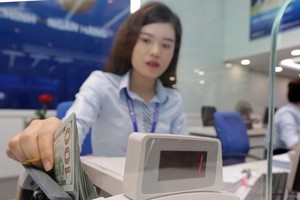







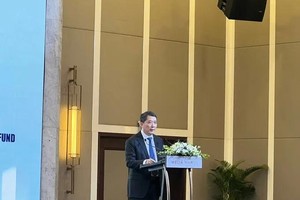
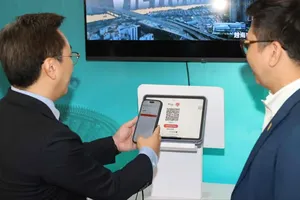



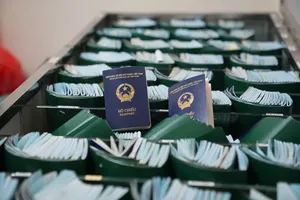
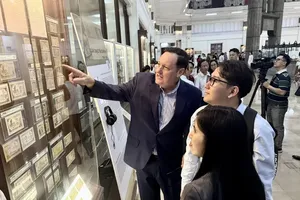
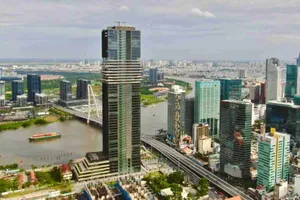

)

)




